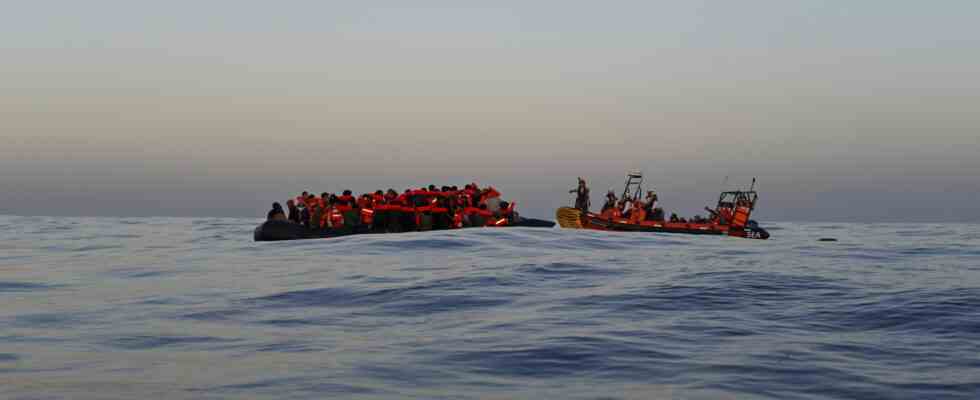Status: 01/26/2023 03:18 am
The EU interior ministers are meeting in Stockholm today for their first meeting of the Swedish Council Presidency. The focus is on cooperation with third countries in order to increase the number of returns of rejected asylum seekers.
The meeting of EU interior ministers in Stockholm takes place against the background of a sharp increase in the number of irregular entries. There were more than 330,000 people last year, most of whom are not entitled to international protection status but are still applying for asylum, says Interior Commissioner Ylva Johansson.
For years, there has been no progress with the repatriation of rejected asylum seekers. The rate is well below the target of 70 percent.
Every year there are around 300,000 return decisions in the EU countries, but only around 70,000 people are actually returned to their home country. That needs to be increased.
Cooperation with third countries is crucial
That is why the EU interior ministers here in Stockholm should primarily talk about cooperation with third countries on returns. It will also be about the EU exerting pressure with its visa policy on countries that are not willing to take back rejected asylum seekers.
Critics believe that this approach bypasses the problem. Cornelia Ernst, a member of the European Parliament for the left, speaks of a smokescreen debate.
Once the fog is gone, it turns out that these asylum seekers come from countries that either no longer take back those who are to be deported or cannot be deported there for very good reasons, such as Afghanistan or Iran.
Asylum and migration policies have been stagnating for years
The Council of the 27 countries, the EU Commission and the Parliament have been standing still in the European asylum and migration policy for years. As one of its first official acts, the Swedish Council Presidency has therefore scheduled a migration summit for February 9th and 10th in Brussels.
So it would be a good sign if the ministers at the Interior Council could push ahead with a common European return system for illegal migrants today, believes Lena Dupont, the interior expert for the CDU/CSU group in the EU Parliament.
At the same time, the Council must also help to prepare the content of the migration summit that will follow in February. Taking stock: Where do we stand in the negotiations? We now have the unique opportunity to cut the Gordian knot, and we must also use this momentum to also deliver in the end of this legislative period in the area of asylum and migration.
agreement unlikely
To do this, however, a basic agreement would have to be reached within the next twelve months, which is at least unlikely in view of the many unresolved issues and serious differences of opinion.
In the run-up to today’s meeting, several EU countries, such as the Netherlands, Austria, France and Belgium, renewed their call for the so-called Dublin rule to be applied consistently. This means that the migrants should remain in the countries of arrival until a decision on their asylum application has been made, which is likely to result in little willingness to cooperate, especially in Italy and other southern European countries.
Meeting of EU interior ministers in Stockholm: Number of returns to be increased
Matthias Reiche, MDR Brussels, currently Stockholm, 26.1.2023 3:18 a.m

